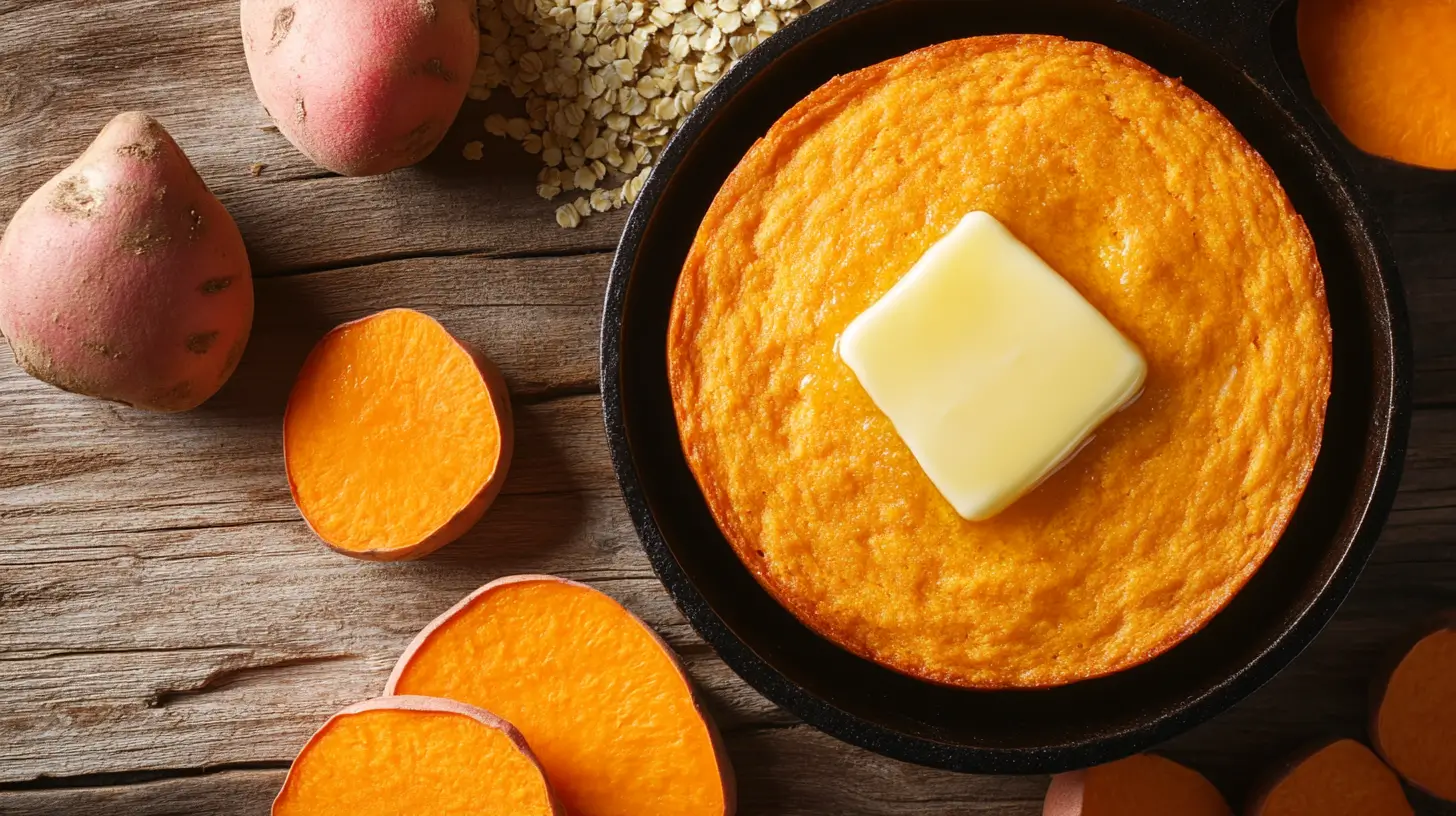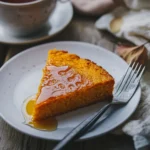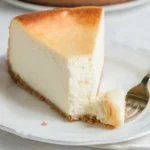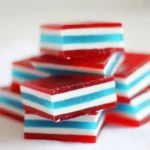Sweet potato cornbread is a game-changer for anyone who loves classic Southern comfort food. It’s got all the familiar flavors of traditional cornbread, but with an irresistible twist—sweet potato puree. The natural sweetness, moisture, and hint of earthy richness from the sweet potatoes make this dish a must-have on your table. Whether you’re serving it at a cozy family dinner or bringing it to a holiday feast, sweet potato cornbread is guaranteed to impress.
Why Sweet Potatoes Elevate Traditional Cornbread
Sweet potatoes take classic cornbread to the next level by adding a natural sweetness and velvety texture that keeps every bite moist and satisfying. Unlike regular cornbread, which can sometimes lean dry or crumbly, the addition of sweet potatoes ensures a soft and tender crumb that melts in your mouth. Plus, they bring in extra nutrients, making your cornbread not just tastier but also more wholesome.
Versatility: From Family Dinners to Holiday Feasts
One of the best things about sweet potato cornbread is its versatility. It’s perfect as a side for everyday meals or as a show-stopping dish for special occasions. Imagine it next to a bowl of hearty taco soup, soaking up all the flavorful goodness. Or serve it alongside classic collard greens with smoked turkey for a full Southern experience.
Why You’ll Love This Recipe
Contents
- 1 Why You’ll Love This Recipe
- 2 Ingredients Breakdown
- 3 Preparing Sweet Potatoes for Cornbread
- 4 Step-by-Step Recipe Instructions
- 5 Tips and Tricks for Perfect Sweet Potato Cornbread
- 6 Serving Suggestions
- 7 Storage and Freezing Guidelines
- 8 Common Mistakes to Avoid
- 9 FAQs About Sweet Potato Cornbread
- 10 Final Thoughts
- 11 Potato Cornbread Recipe Card
If you haven’t tried sweet potato cornbread yet, you’re in for a treat. Here’s why this recipe stands out.
Unique Flavor Profile & Texture
Sweet potato cornbread offers the perfect balance of sweet and savory flavors. The subtle sweetness from the sweet potatoes pairs beautifully with the nutty flavor of cornmeal and the richness of butter. You’ll get a moist, fluffy texture with just the right amount of crumb. Plus, the edges crisp up beautifully, especially if you bake it in a cast iron skillet.
- How Sweet Potatoes Enhance Moisture and Fluffiness
Sweet potatoes naturally hold moisture, which helps keep the cornbread soft for days. They also work alongside ingredients like eggs and buttermilk to create a light and fluffy texture without being too dense.
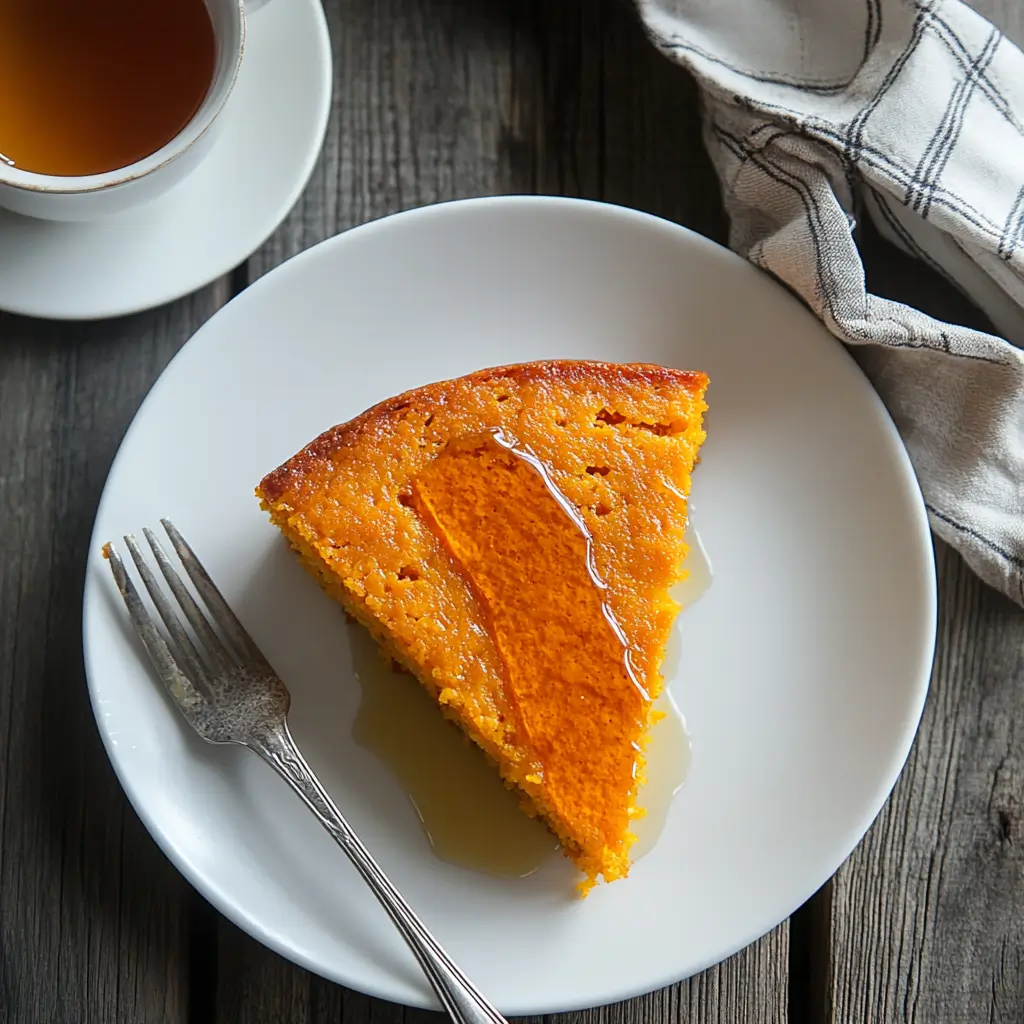
Health Benefits of Sweet Potato Cornbread
Beyond the taste, sweet potato cornbread brings a range of health benefits to the table. Sweet potatoes are loaded with vitamins, fiber, and antioxidants, making this a healthier alternative to regular cornbread.
- Packed with Vitamins and Fiber
Sweet potatoes are rich in vitamin A, C, and fiber, supporting immune health and digestion. - Naturally Gluten-Free and Adaptable for Dietary Needs
With a few ingredient swaps, you can make this cornbread gluten-free or even dairy-free. Options like almond flour or coconut oil can be used without compromising flavor or texture.
Versatile Serving Options
Sweet potato cornbread pairs beautifully with many dishes. Whether you’re dipping it into a bowl of chili or enjoying it on its own with a drizzle of honey, the possibilities are endless.
- Perfect with Soups, Stews, or as a Standalone Treat
Serve it warm alongside a comforting Lipton onion soup meatloaf or crumble it into a bowl of hearty chili for a delightful twist.
Ingredients Breakdown
To achieve the perfect sweet potato cornbread, you’ll need a combination of key ingredients that work together to create that signature flavor and texture.
Essential Ingredients for the Perfect Cornbread
Here’s what you’ll need:
- Sweet Potatoes (preferably garnet yams) – These bring sweetness and moisture.
- Cornmeal – For that classic gritty texture and flavor.
- All-purpose flour – Helps balance the density.
- Eggs – Essential for structure and moisture retention.
- Butter – Adds richness and flavor.
- Buttermilk – Helps create a tender crumb.
- Brown sugar – Enhances the sweetness.
- Baking powder & baking soda – Ensures a good rise.
- Cinnamon and nutmeg – Warm spices that complement the sweet potatoes.
Alternative Ingredient Options
If you have dietary preferences or allergies, there are great substitutions you can make.
- Gluten-Free and Dairy-Free Substitutions
Swap all-purpose flour with almond or oat flour and replace buttermilk with plant-based milk like almond or coconut milk. - Vegan-Friendly Ingredient Swaps
Use flax eggs instead of regular eggs and coconut oil instead of butter.
Understanding the Role of Each Ingredient
Each ingredient plays a key role in the final product:
- Sweet Potatoes: Provide moisture and natural sweetness.
- Cornmeal: Creates that signature texture.
- Eggs: Act as a binder and help with structure.
- Butter: Adds richness and enhances flavor.
- Brown Sugar: Balances the savory and sweet elements.
Preparing Sweet Potatoes for Cornbread
Before mixing up your batter, you’ll need to prepare your sweet potatoes the right way.
Different Preparation Methods
Each method affects the flavor and texture of your cornbread.
- Boiling for a Soft Texture
Boiling sweet potatoes results in a soft and mild flavor, perfect if you’re in a hurry. - Roasting for Deeper Flavor
Roasting brings out the natural sweetness and adds a caramelized depth that enhances the cornbread’s flavor. - Microwaving for a Quick Fix
If you’re short on time, microwaving sweet potatoes is a fast and effective way to get them soft and mashable.
Pro Tips for the Best Sweet Potato Puree
To achieve the best consistency:
- Achieving the Smoothest Consistency
Use a food processor to blend your cooked sweet potatoes until they’re silky smooth. - Preventing Watery Puree Issues
Be sure to drain well if boiling, and avoid adding extra liquid when mashing.
Step-by-Step Recipe Instructions
Perfecting sweet potato cornbread is all about nailing the process from start to finish. Each step, from measuring ingredients to baking, plays a crucial role in achieving that moist and flavorful result. Let’s walk through the process step by step to ensure you get a golden-brown masterpiece every time.
Prepping Your Ingredients
Before you start mixing, it’s important to have all your ingredients ready and measured accurately. This helps maintain the right balance of flavors and texture, making sure every slice of cornbread is just right.
- Measuring Accurately for the Perfect Balance
Use measuring cups and spoons to get the exact amounts of flour, cornmeal, and sweet potato puree. A kitchen scale can also come in handy, especially when working with ingredients like butter and sugar. Precise measurements prevent the batter from becoming too dry or too wet. - Room Temperature Ingredients Matter
Bring eggs, buttermilk, and butter to room temperature before mixing. This ensures they blend well and create a smooth batter.
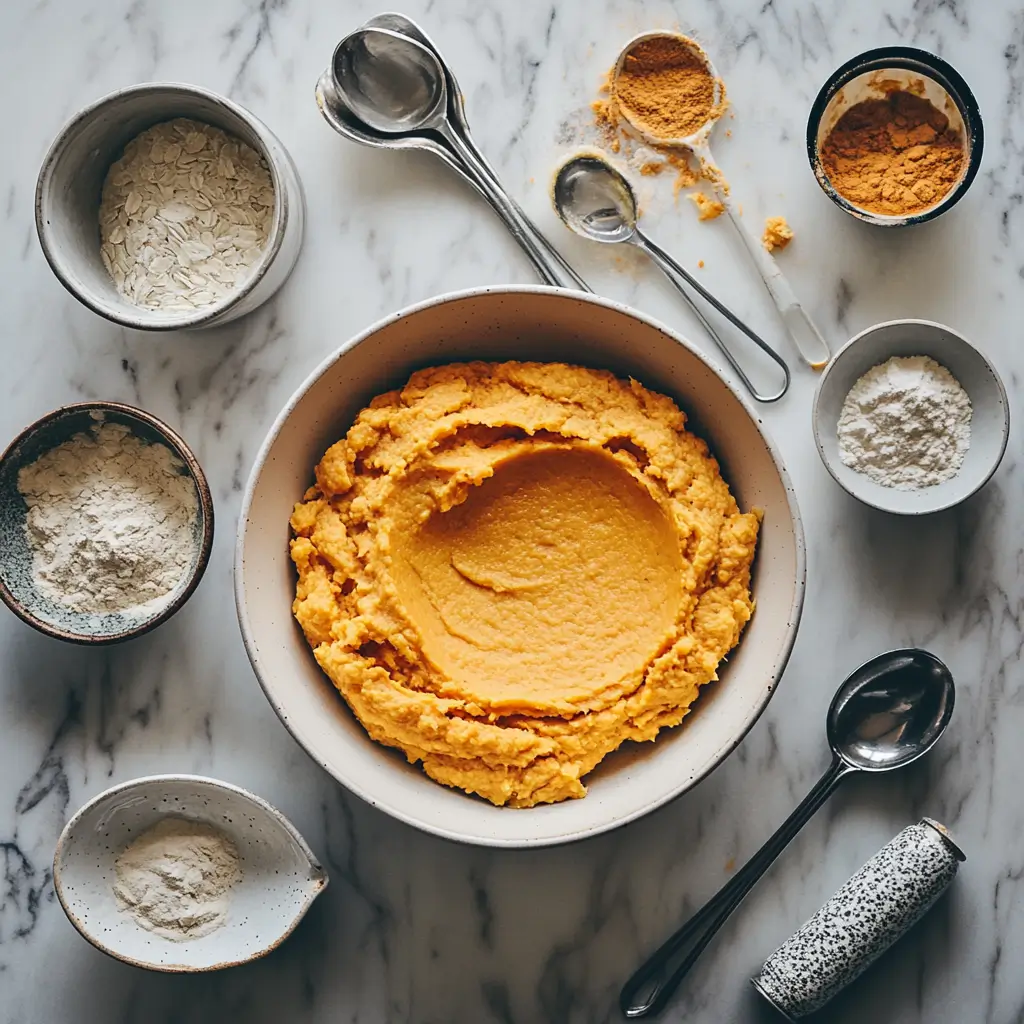
Mixing Wet and Dry Ingredients Separately
Keeping wet and dry ingredients separate before combining is crucial to avoid overmixing and to achieve the perfect texture.
- Dry Ingredients: Whisk together cornmeal, flour, baking powder, baking soda, salt, and spices. This evenly distributes leavening agents and flavors.
- Wet Ingredients: In another bowl, combine the mashed sweet potato, buttermilk, eggs, melted butter, and a touch of vanilla extract.
Why This Step Matters:
Mixing them separately prevents overdeveloping the gluten in the flour, ensuring the cornbread stays tender instead of dense.
Combining and Baking
Once your ingredients are prepped, it’s time to bring them together and get baking.
- Folding Gently for the Perfect Rise
When combining wet and dry ingredients, fold them together gently. Overmixing can lead to a dense, tough cornbread. - Achieving the Perfect Golden Crust
Bake your batter in a preheated oven at 375°F in a greased baking dish or cast iron skillet. The skillet gives the cornbread a beautifully crisp edge while keeping the inside soft and fluffy.
Testing for Doneness
Avoiding undercooked or overcooked cornbread is key to getting the perfect bite.
- The Toothpick Test: Insert a toothpick into the center—if it comes out clean or with a few crumbs, it’s done.
- Golden-Brown Edges: Look for lightly browned, crisp edges that easily pull away from the pan.
- Time Check: Baking typically takes 30–40 minutes, so keep an eye on it to prevent overbaking.
Tips and Tricks for Perfect Sweet Potato Cornbread
If you want to take your sweet potato cornbread to the next level, here are some tried-and-true tips and creative ideas to customize it to your liking.
Baking Variations
Cornbread doesn’t have to be baked in a traditional dish. Try these variations:
- Muffins: Pour the batter into muffin tins for perfectly portioned bites that bake faster.
- Skillet Cornbread: Use a cast iron skillet for a crispy crust and extra flavor.
- Loaf Pan: Baking in a loaf pan results in a denser, more cake-like texture.
Each method changes the texture slightly, so pick the one that suits your preference.
Moisture Retention Secrets
Nobody likes dry cornbread! Here’s how to keep it moist and tender:
- Sweet Potato Puree Consistency: Ensure the puree is smooth and not too watery.
- Adding Extra Fat: Ingredients like sour cream or coconut oil can keep it rich and moist.
- Covering After Baking: Let the cornbread cool under a kitchen towel to lock in moisture.
Flavor Enhancements
Want to spice things up? Here are some delicious add-ins:
- Spices: A dash of nutmeg, cinnamon, or even cayenne can add warmth.
- Mix-ins: Try adding chopped pecans, dried cranberries, or a swirl of honey for extra sweetness.
- Savory Touches: Crumbled bacon or shredded cheese can balance the sweetness.
Ingredient Substitutions and Adjustments
Whether you have dietary restrictions or just want to switch things up, here are some great substitutions:
- Low-Sugar Options: Reduce sugar and add honey or maple syrup instead.
- Dairy-Free Alternatives: Swap buttermilk for almond milk with a splash of vinegar.
- Gluten-Free Flour Choices: Use almond or oat flour for a gluten-free version.
Serving Suggestions
Sweet potato cornbread is versatile and pairs well with a variety of dishes. Whether you’re serving it as a side or using leftovers creatively, there’s no shortage of ways to enjoy it.
Best Dishes to Pair with Sweet Potato Cornbread
Sweet potato cornbread complements hearty, flavorful dishes perfectly. Try pairing it with:
- Beef Stew with Roux: The rich, savory flavors of beef stew pair beautifully with the sweetness of cornbread.
- Creamy Parmesan Italian Sausage Soup: The creamy, cheesy texture of this soup is a perfect contrast to the cornbread’s crumbly texture.
- Passover Potato Pie: Double down on the potato goodness with this unique and delicious dish.
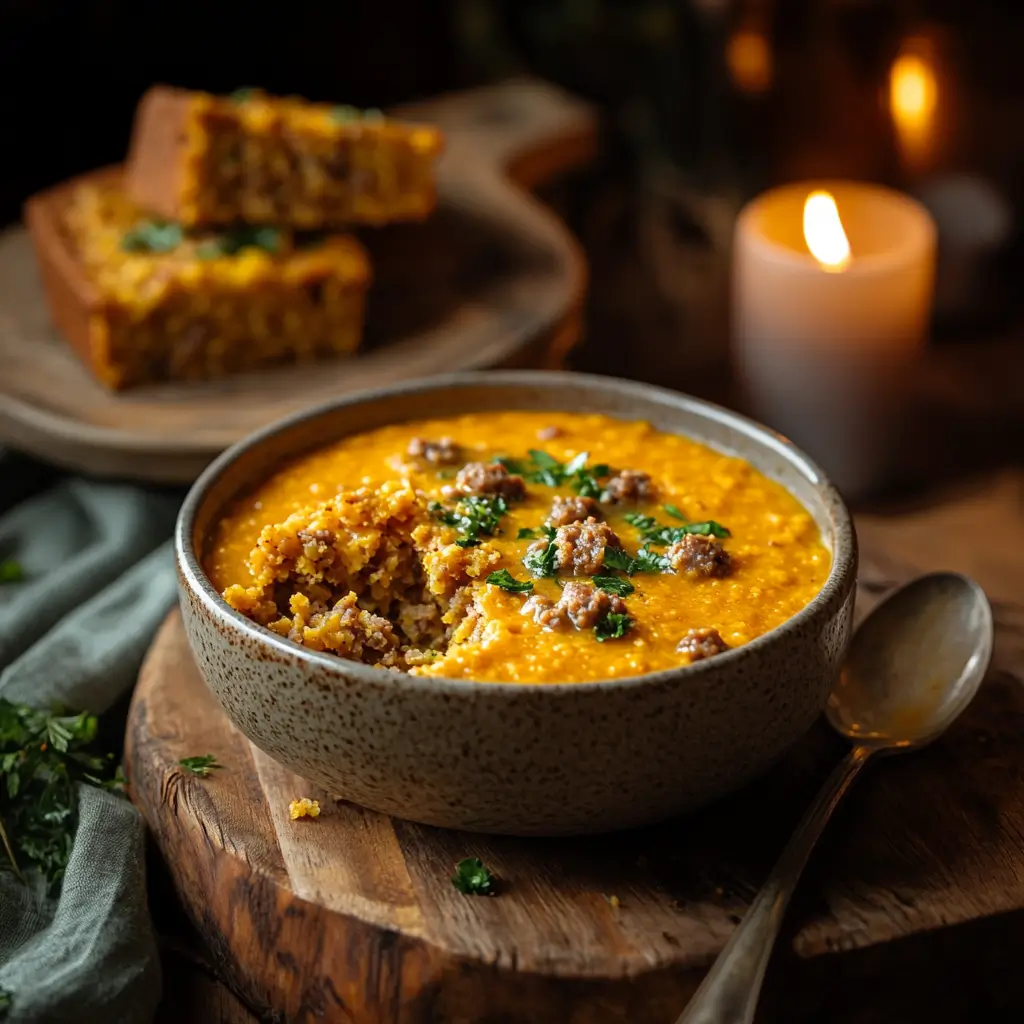
Creative Ways to Enjoy Leftovers
Don’t let leftover cornbread go to waste—transform it into something new and delicious.
- Cornbread Stuffing: Crumble it up and mix it with herbs and broth for a flavorful stuffing.
- Cornbread Croutons: Cut into cubes, bake until crisp, and toss onto salads or soups.
- Sweet Breakfast Treat: Warm a slice and top it with butter and honey for a quick and satisfying breakfast.
Storage and Freezing Guidelines
Once you’ve made a delicious batch of sweet potato cornbread, knowing how to store it properly will help keep it fresh and tasty for as long as possible. Whether you’re planning to enjoy it over a few days or save it for later, these tips will ensure your cornbread stays moist and flavorful.
Proper Storage Methods
The way you store your sweet potato cornbread depends on how soon you plan to eat it. Here’s a breakdown of the best methods:
- Room Temperature vs. Refrigeration
If you plan to eat your cornbread within 1-2 days, storing it at room temperature in an airtight container is the best option. This keeps it soft and prevents it from drying out. However, if you’re keeping it longer, refrigeration is the way to go. Place it in an airtight container or wrap it tightly in plastic wrap to preserve its moisture.
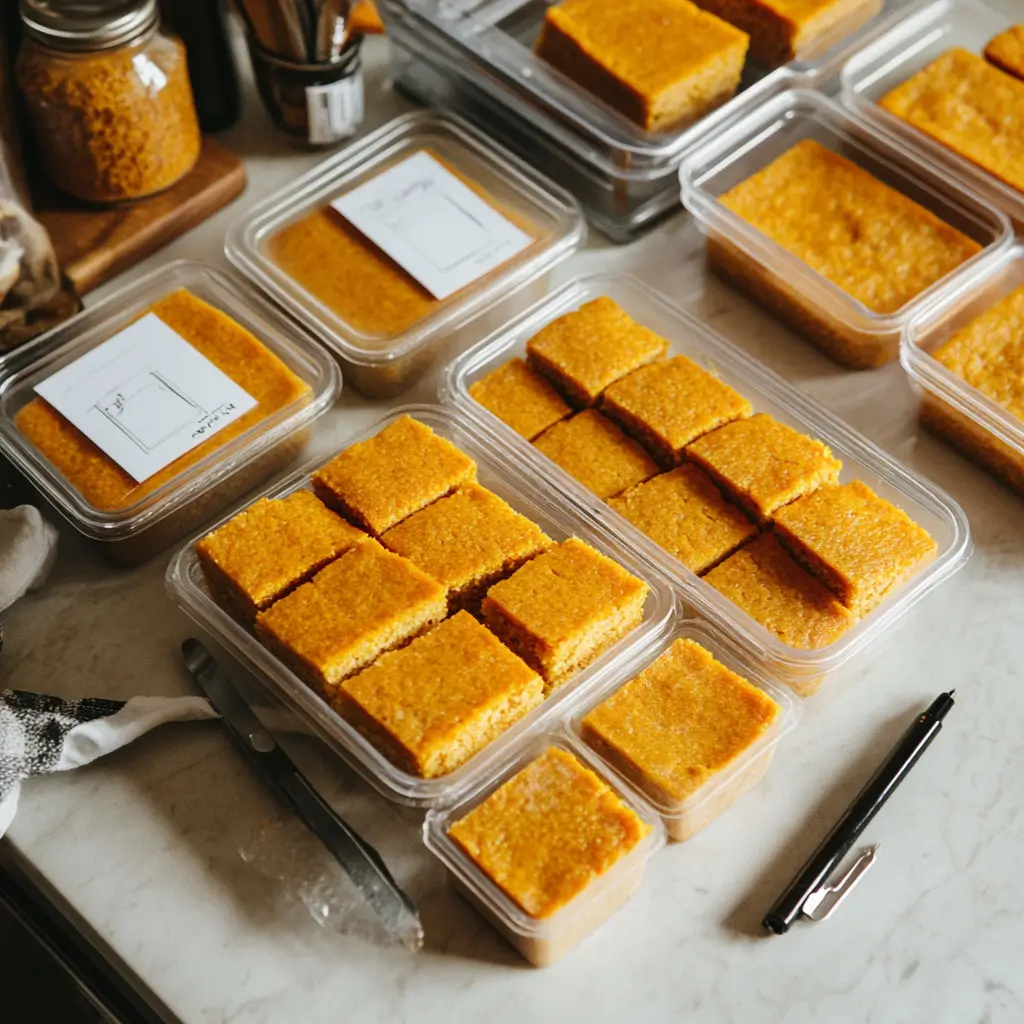
Pro Tip: Avoid leaving it uncovered, as exposure to air can make it stale faster.
Freezing for Long-Term Use
Want to keep your cornbread fresh for weeks? Freezing is a great option.
- How to Freeze and Reheat Effectively
To freeze, wrap individual slices or the whole cornbread tightly in plastic wrap and place them in a freezer-safe bag. This prevents freezer burn and maintains flavor. When you’re ready to enjoy it, reheat slices in the microwave for 20-30 seconds or in a preheated oven at 350°F for 10 minutes to restore its original texture.
Common Mistakes to Avoid
Even the best bakers can run into issues when making sweet potato cornbread. Avoid these common mistakes to ensure perfect results every time.
Overmixing the Batter
One of the biggest pitfalls in making cornbread is overmixing. When you mix too much, the gluten in the flour develops, leading to a dense, chewy texture instead of the light, fluffy crumb you want.
Solution: Gently fold the ingredients just until they are combined. A few lumps in the batter are perfectly fine and help create a tender crumb.
Using the Wrong Sweet Potato Variety
Not all sweet potatoes are created equal, and choosing the right type makes a big difference in flavor and texture.
- Choosing the Best Type for Maximum Flavor
Garnet yams or Beauregard sweet potatoes are the best choices for this recipe. They have a naturally sweet, moist flesh that blends well into the batter. Avoid dry, starchy varieties that can affect the texture of your cornbread.
Not Testing for Doneness Correctly
Pulling your cornbread out of the oven too soon (or leaving it in too long) can ruin your final result.
- Ensuring Your Cornbread is Fully Baked
Use the classic toothpick test—insert it into the center of the cornbread, and if it comes out clean or with a few crumbs, it’s ready. If you see wet batter, give it a few more minutes. Also, look for golden-brown edges that pull slightly away from the pan.
FAQs About Sweet Potato Cornbread
Curious about how sweet potato cornbread fits into your meals? Here are some commonly asked questions and helpful answers.
Is sweet potato a good substitute for bread?
Yes! Sweet potato cornbread offers a healthier, more flavorful alternative to regular bread. It’s packed with fiber, vitamins, and natural sweetness, making it perfect for those looking for a nutrient-dense option.
What is the difference between Southern cornbread and sweet cornbread?
Southern cornbread tends to be more savory, with minimal sugar and a focus on a crisp, golden crust—especially when baked in a cast iron skillet. Sweet cornbread, on the other hand, includes ingredients like brown sugar, honey, or maple syrup, giving it a sweeter flavor that pairs well with dishes like healthy chicken and cabbage soup.
Why do you need to soak sweet potatoes before cooking?
Soaking sweet potatoes before cooking helps remove excess starch and enhances their natural sweetness. This step isn’t necessary for cornbread, but if roasting, it can help achieve a better caramelized flavor.
What does Patti Labelle put in her sweet potato pie?
Patti Labelle’s famous sweet potato pie includes ingredients like cinnamon, nutmeg, butter, and vanilla extract, which are also great additions to sweet potato cornbread to enhance its flavor.
Final Thoughts
Sweet potato cornbread is more than just a side dish—it’s a comforting, flavorful addition to any meal. Whether you’re serving it with vegan pumpkin risotto for a plant-based twist or pairing it with a hearty bowl of beef stew with roux, it’s bound to be a hit at the table.
With the right ingredients, baking techniques, and storage tips, you can enjoy sweet potato cornbread whenever the craving hits. Give this recipe a try, and don’t be afraid to customize it to suit your taste. Whether you prefer it sweet or savory, you’ve got all the tools you need to make it perfect.
Now it’s your turn—grab those sweet potatoes and start baking!
PrintPotato Cornbread Recipe Card
This sweet potato cornbread is moist, tender, and packed with a subtle sweetness that pairs perfectly with savory dishes. Made with creamy sweet potato puree, warm spices, and buttery goodness, it’s the perfect addition to family dinners, holiday feasts, or a cozy night in.
- Prep Time: 15 minutes
- Cook Time: 35 minutes
- Total Time: 50 minutes
- Yield: 8 servings 1x
- Category: Side Dish
- Method: Baking
- Cuisine: Southern
- Diet: Vegetarian
Ingredients
- 1 cup sweet potato puree (roasted or boiled)
- 1 cup cornmeal
- 1 cup all-purpose flour (or gluten-free alternative)
- 1/2 cup brown sugar
- 1 teaspoon baking powder
- 1/2 teaspoon baking soda
- 1/2 teaspoon salt
- 1 teaspoon cinnamon
- 1/4 teaspoon nutmeg
- 2 large eggs
- 1/2 cup buttermilk (or dairy-free milk alternative)
- 1/4 cup melted butter (or coconut oil)
- 1 teaspoon vanilla extract
- 2 tablespoons honey (optional)
Instructions
- Preheat your oven to 375°F (190°C). Grease an 8×8-inch baking dish or cast iron skillet.
- Prepare the sweet potato puree by roasting or boiling sweet potatoes until tender. Mash until smooth.
- Mix dry ingredients – In a bowl, whisk together cornmeal, flour, baking powder, baking soda, salt, cinnamon, and nutmeg.
- Mix wet ingredients – In another bowl, whisk sweet potato puree, eggs, buttermilk, melted butter, and vanilla extract.
- Combine wet and dry – Gradually fold the wet mixture into the dry ingredients. Stir gently until just combined.
- Pour the batter into the prepared baking dish and smooth the top.
- Bake for 30-40 minutes or until a toothpick inserted in the center comes out clean.
- Cool slightly before slicing and serving. Enjoy warm with butter or honey!
Notes
- For extra flavor, add chopped pecans or dried cranberries to the batter.
- To make it dairy-free, substitute buttermilk with almond milk and butter with coconut oil.
- Leftovers can be stored in an airtight container for up to 3 days at room temperature.
Nutrition
- Serving Size: 1 slice
- Calories: 230 kcal
- Sugar: 12g
- Sodium: 180mg
- Fat: 9g
- Saturated Fat: 4g
- Unsaturated Fat: 3g
- Trans Fat: 0g
- Carbohydrates: 34g
- Fiber: 3g
- Protein: 4g
- Cholesterol: 45mg
Keywords: sweet potato cornbread recipe, moist cornbread, Southern cornbread, homemade cornbread, gluten-free cornbread, Thanksgiving sides

